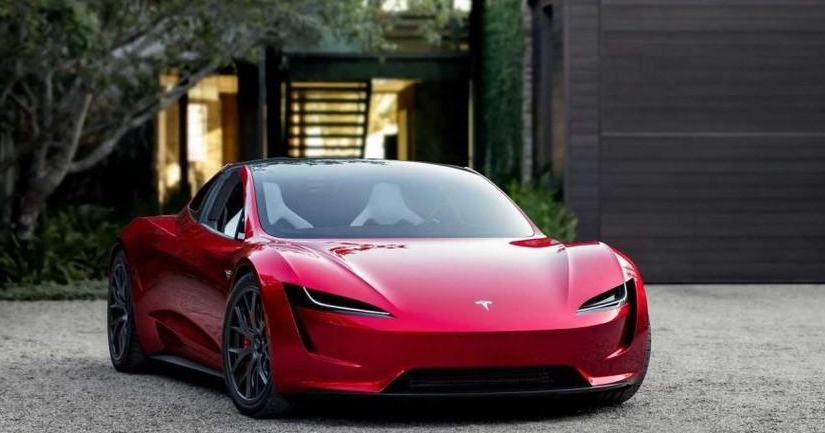Elon Musk has consistently been a figure of intrigue and controversy, especially known as the "real-life Iron Man." However, as he fervently pursues business and political engagements, he finds himself embroiled in challenges that may be more daunting than ever. Recent developments indicate that as Musk is engaged in his apparent crusade against inefficiencies within the U.S. government and launching a high-stakes acquisition endeavor surrounding AI, his flagship company, Tesla, is facing unprecedented turmoil. With plunging stock prices, reduced sales figures, and fierce competition, one might wonder if Tesla can withstand the storm.
One particularly notable initiative is Musk’s appointment to lead the newly formed Department of Government Efficiency (DOGE) at the behest of the President. The aim is ambitious: streamline government operations, boost productivity, and trim budget deficits. However, within weeks of taking the helm, Musk pushed forward with reforms impacting at least 19 federal departments, sparking a political uproar.
Musk’s assessment is clear — he perceives the government as bloated and sluggish. His approach is intended to eliminate inefficiencies and fortify fiscal health. Yet, this bold stance has drawn considerable opposition, exemplified by a coalition of attorneys general from 14 states who have filed lawsuits against the DOGE initiative, asserting its overreach of authority and potential unconstitutionality. Musk, unfazed, countered with provocative statements, suggesting that “all federal agencies should be abolished,” a sentiment that has left many astonished.
While this political upheaval has garnered Musk new supporters, it has simultaneously created a plethora of adversaries. Transitioning from tech entrepreneur to political reformer presents Musk with a new set of challenges, raising the question of whether he can navigate this massive ship without capsizing.
In addition to his political escapades, Musk has sparked waves in the artificial intelligence sector by spearheading a bid to acquire OpenAI, the organization he co-founded. He has assembled a group of investors to propose a staggering deal that values OpenAI’s nonprofit parent company at $97.4 billion.

Despite his prior affiliation with OpenAI, Musk exited under contentious circumstances, criticizing the company for what he views as a departure from its original mission of promoting open-source technologies. He has alleged that OpenAI has become overly dependent on corporate interests, particularly Microsoft, to the detriment of its foundational vision.
In response, Sam Altman, OpenAI's current CEO, outright dismissed Musk’s offer, quipping that if Musk was willing, OpenAI could pitch $9.74 billion to buy Twitter. Such exchanges exemplified the dramatic tension unfolding in the tech sector, capturing the attention of industry watchers.
From a business perspective, this acquisition appears precarious. OpenAI is currently valued at approximately $300 billion, making Musk’s offer look relatively meager. Additionally, given that Musk's wealth largely lies in stock options and shares rather than liquid cash, successfully completing this deal may hinge on significant stock sales—potentially degrading Tesla's already volatile share prices.
While Musk directs his attention toward these ambitious ventures, Tesla itself is tightening around the bolts of a significant crisis. The company's stock has tumbled by approximately 16.6% since the presidential inauguration, erasing nearly $227.3 billion of market valuation. In terms of sales, records show a stark 10.8% decline in Tesla registrations in the U.S. compared to the previous year, with California reporting an alarming 12% drop. The European market reveals even graver concerns; Tesla sales in France fell by 63%, and Germany showed a 59% descent in January alone.
Analysts attribute these declines to an array of factors beyond simple market fluctuations—rising competition within the electric vehicle landscape, pressing macroeconomic strains, and Musk’s escalating political aspirations appear to be cultivating a divide between Tesla and its consumer base. Some experts suggest that Musk’s outspoken support for controversial political movements, particularly among European right-wing factions, has alienated potential customers.
Looking forward, Tesla faces increasing pressures from competitors in the autonomous driving sector, notably Waymo, which has begun deploying self-driving taxis in various metropolitan areas, and BYD in China, which has aggressively captured market share with cost-effective offerings. BYD’s new autonomous vehicle boasts a starting price of around ¥69,800, while Tesla’s most budget-friendly Model 3 commands a price tag of $39,900—creating a significant price disparity.
In light of such competitive turmoil, Musk announced during Tesla’s January earnings call plans for the launch of their autonomous taxi service, Cybercab, slated for 2026. While this initiative may seem promising, analysts caution that even with successful deployment, Tesla will simply be one among many players facing titans like Waymo and BYD, making it challenging to command a dominant market position.
Ultimately, one must ponder whether Musk can maintain equilibrium amidst chaos. His ventures span an extensive range of sectors—spanning technology, automotive, space exploration, social media, and AI—drawing unprecedented public interest. However, this trajectory is fraught with peril.
The DOGE reforms are already grappling with legal obstacles, risking his political capital. The acquisition of OpenAI faces its own challenges, compounded by lofty valuations and rejection from leadership. Simultaneously, Tesla confronts a perilous scenario of stagnating growth and market share erosion. If Musk cannot recalibrate his strategizing promptly, the future trajectory of Tesla may lead to more drastic upheaval.
Collectively, it’s evident that Musk is entrenched in perhaps the most intricate chess match of his career. If he can strike a delicate balance between government reform, competitive AI endeavors, and the challenges plaguing Tesla, he might encore his legacy. However, by overextending his reach, he runs the risk of succumbing to the adage of “biting off more than he can chew,” imperiling what should be his paramount commercial empire.
It raises the question of what lies ahead for Musk: will he continue to charge forward relentlessly, or will he retreat strategically back to his core endeavors? Only time will reveal the answers.